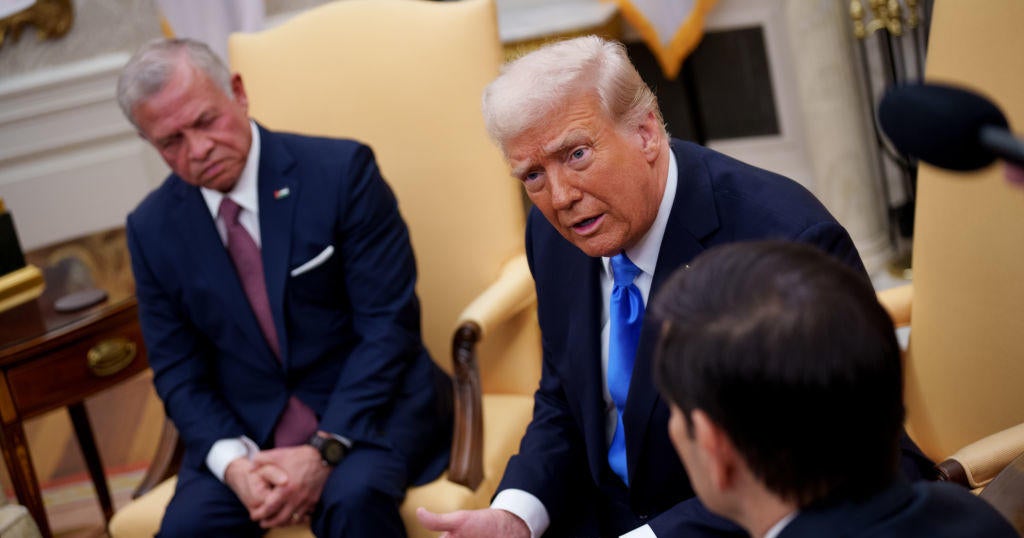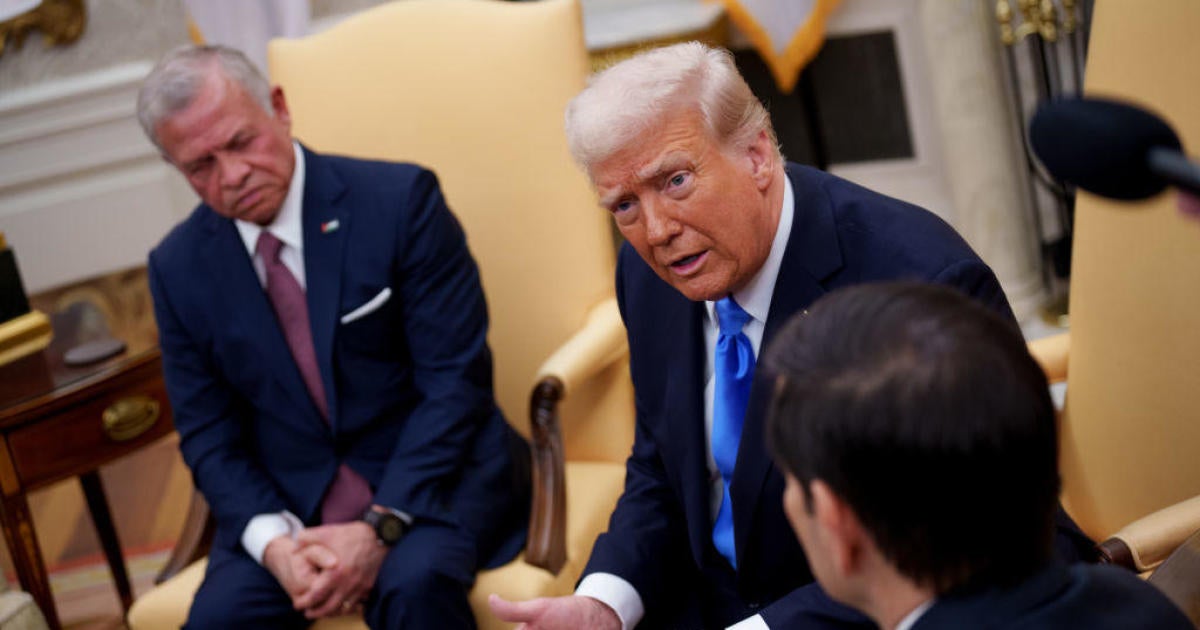
Trump’s Controversial Gaza Plan and Meeting with King Abdullah II
President Trump’s recent meeting with King Abdullah II of Jordan brought forth a barrage of controversial statements regarding the future of Gaza. The meeting, held amidst growing tensions in the Middle East, highlighted Trump’s audacious plan to reshape the region, a plan met with immediate and vocal opposition from the Arab world. Trump’s proposals, including the potential emptying of Gaza and its redevelopment as a U.S.-controlled tourist area, have ignited a firestorm of debate, raising serious concerns about the displacement of Palestinians and regional stability. This article delves into the specifics of the meeting, examines Trump’s plan in detail, and analyzes the reactions and concerns surrounding it.
Trump’s Proposal: A U.S.-Controlled Gaza?
During the meeting in the Oval Office, President Trump reiterated his suggestion for the United States to take control of Gaza, a territory currently under the control of Hamas. He envisioned a transformed Gaza, transformed into a lavish tourist destination. This plan, which envisions expelling Palestinian residents, has drawn harsh criticism for its disregard for the Palestinian population’s rights and potential human rights violations. Critics point out the ethical implications of forcibly relocating a large population and the inherent complexities of administering such a vast undertaking. Moreover, the practicality of such a plan is questionable, considering the logistical and political obstacles.
The meeting was marked by Trump’s assertions that the United States would not hesitate to withhold aid from nations who didn’t embrace his ambitious Gaza plan. This marked a significant shift in his previous statements, and prompted immediate concerns about the potential consequences for long-standing U.S. alliances. The suggestion of potential aid restrictions for nations like Jordan and Egypt, long-standing U.S. allies, further fueled the controversy surrounding the plan. This stark contrast between Trump’s initial position and his subsequent stance, revealed a seemingly opportunistic approach, potentially driven by geopolitical calculations rather than genuine humanitarian concerns.
King Abdullah’s Response and the Arab Position
King Abdullah II, in stark contrast to Trump’s proposal, reiterated Jordan’s steadfast opposition to the displacement of Palestinians from Gaza and the West Bank. He emphasized that the unified Arab stance is firmly against any actions that would cause such population relocation, as a relocation of this magnitude is viewed as a severe breach of international humanitarian law. The King’s strong position mirrors the shared sentiments of several Arab nations, indicating a unified front against Trump’s vision. Jordan’s commitment to the Palestinian cause is further underscored by the king’s direct mention of the commitment to assisting 2,000 children with health issues. This compassionate gesture directly contrasts with the controversial aspects of Trump’s Gaza plan.
King Abdullah’s statements highlight the urgent need for a just peace agreement that respects the rights and well-being of all involved parties. His clear rejection of Trump’s plan further highlights the deep-seated concerns about the potential for displacing residents and the imperative for a two-state solution. His insistence on prioritizing rebuilding Gaza without displacement, and addressing the dire humanitarian crisis, exemplifies a collaborative and compassionate approach to a complex conflict.
The Implications and Concerns Surrounding Trump’s Plan
Trump’s proposal raises several crucial questions about the long-term implications for regional stability and international relations. The plan’s potential ramifications for the already complex Israel-Palestine conflict and regional security are significant. The proposal to relocate Palestinian residents to neighboring countries is a move that will almost certainly cause a cascade of humanitarian crises in bordering nations and will likely create additional social unrest. Concerns about jeopardizing the two-state solution and the potential for further instability in the region are significant, particularly when considering the history of conflict in the area.
The proposal to U.S. control over Gaza also raises complex legal and ethical issues. Ultimately, the plan carries the threat of disrupting the delicate balance of power in the region and significantly undermining the global community’s efforts to achieve lasting peace. Trump’s comments suggest a level of geopolitical ambition that may strain existing alliances and exacerbate existing tensions.
Conclusion: The Path Forward
Trump’s meeting with King Abdullah, and the subsequent discourse surrounding his Gaza plan, serve as a stark reminder of the complex and often contradictory perspectives on the Israeli-Palestinian conflict. The plan’s potential ramifications are far-reaching, impacting not only the Palestinians in the region but also the wider Middle East and international relations. This situation underscores the crucial need for diplomatic dialogue, collaboration, and a commitment to finding a comprehensive and equitable solution that respects the rights of all involved parties. The situation demands a more compassionate approach that involves global cooperation and collaboration.









